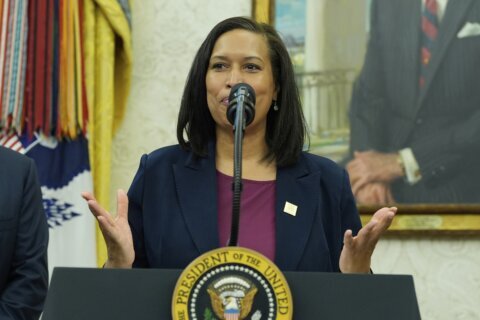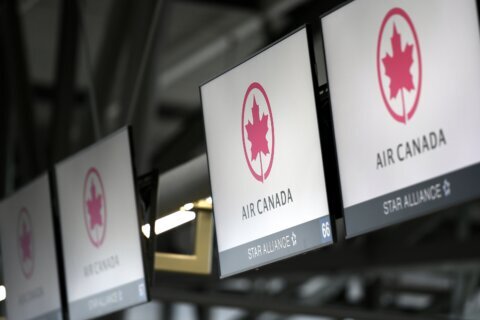As has been the case throughout the period following the COVID-19 pandemic, tourism in D.C. is up, and last year was a record-setting one for the city.
More than 27 million people visited the District in 2024, about 1.25 million more than in 2023.
“To put that in perspective, the number of visitors that have come to Washington would sell out Nationals Park 650 times,” said Elliott Ferguson, the president and CEO of Destination D.C. “It equates to $11.4 billion in spending, creating $2.3 million in tax revenue for the city.”
Ferguson added, “Without those visitors, we’d all be spending about $3,600 per resident in taxes.”
Of the 27.2 million visitors, about 25 million were domestic travelers throughout America.
“A third of those that are coming are business travelers, which make up about 45% of the spend,” Ferguson said.
The other 2.2 million came from around the rest of the world, and that number was up about 10% compared to 2023, which is good, because while the average domestic traveler spends about $600 in D.C., international travelers spend more than $2,000 every time they visit.
“They stay longer and they spend more,” Ferguson said.
‘There’s a perception forming’: Tourism prospects for 2025
However, there’s concern that international travel will drop sharply this year. The expectation nationally is that international visits to the U.S. will drop nearly 10% — though D.C. is bracing for a more modest 6.5% decline. Some of that has to do with red tape that can make visiting the U.S. more difficult than the travel industry would like. But politics also matter.
Tourism expects said some potential visitors from other countries are fearful because of President Donald Trump’s administration’s foreign policy and rhetoric surrounding immigration.
“There’s a perception forming overseas that the U.S. isn’t as welcoming as it once was,” said Geoff Freeman, U.S. Travel Association president and CEO. “There’s a perception forming that people might be detained or otherwise discouraged from coming here. I don’t think this perception is accurate, but I know we’ve got a lot of work to do to shape a more favorable perception,”
Ferguson said that perception particularly affects D.C.
“When you are watching the news every single day in a different country and you’re seeing politics tied to Washington, they don’t get to know things about our city until they come here,” Ferguson said. “That rhetoric, of course, is going to have a negative impact in terms of how people perceive travel to the U.S.”
But Ferguson said that just means the local travel industry needs to do more to “humanize” D.C. in a way that typical world news coverage doesn’t.
“When you are watching the news every single day in a different country and you’re seeing politics tied to Washington, they don’t get to know things about our city until they come here,” Ferguson said. “We love monuments, memorials, museums, but it’s our neighborhoods, restaurants, of course sports, nightlife, theater — things that may not resonate with visitors that really attract them to the city.”
D.C. Mayor Muriel Bowser said it’s important to sell those aspects.
“People want to come have fun, they don’t necessarily want to be talking about politics,” Bowser said. “So it’s important for us to let people know we’re way more than that.”
She added, “We just have to keep working.”
Get breaking news and daily headlines delivered to your email inbox by signing up here.
© 2025 WTOP. All Rights Reserved. This website is not intended for users located within the European Economic Area.








